« Linky » is the name of the French electrical Smart meter in France
Here are the results for measurements carried out in an apartment
Here-below some examples of PLC-G3 radiation measurements from Electrical Smart Meter when a rapid PLC signal is emitted:
Measurements were taken in an apartment in close proximity to a plugged-in lamp and also around live electric cables.
Attention, the tests herewith presented only apply to PLC-G3 signals (the frequency band used between 35,9 KHz and 90,6 KHz). No test has yet been carried out for PLC-G1 electrical Smart meter (63,3 KHz and 74 KHz).
When carrying out tests in this apartment, in order to monitor sufficient PLC signals we had to wait each time for midnight (signals are frequent between 00:10 & 00:40). During the day, PLC communications from Smart meters were not frequent.
The results :
As the measures below show, in spite of the set of an electrical filter in the switch panel, there is intense PLC electromagnetic radiation in all the electrical domestic installation. I have tested various makes of filters on the market and the result is always the same, the radiation intensity is identical, with or without installing anti-Smartmeter filters in the electric panel.
- Measurements of PLC Smart meter radiation where filters have been installed go from 1.1 V/m to 9 V/m with more often radiation around 2.5 V/m close to a live source (demonstrated here below).
- These values are identical without the installation of filters
› The radiation signals from PLC Smart meter therefore fall under the category of high frequency waves.
The measures :
Here a value of 9.046 V/m (peak value of the electric field) measured between 35,9 KHz & 90,6 KHz at the moment of a rapid PLC Smart meter signal
509.3 mV/m (peak) corresponds to the permanent value of the electric fields
(between 35,9 KHz &
90,6 KHz) outside PLC
communication outside of Smart meter communications
Tests under laboratory conditions
The efficiency of electrical filters only seems reliable under laboratory conditions. Anti-Smartmeter filter tests carried out with only a little electric current consumption or none, showed sufficient attenuation for certain filters.
Several years ago, Emitech Laboratory tests as well as my tests enabled the validation of the performance of some filters under these laboratory conditions (at the time there was no other choice. However, nobody had really measured PLC Smart meter radiation in the home (the only true value)).
Recently I had to invest in a specific probe that was very expensive for the spectrum analyser Narda SRM 3006 in order to definitely lift any doubt on this subject (calibrated electric probe Narda 3531/04 measuring the electric field from 9 Khz to 300 Mhz).
The results of the first tests in an apartment concerning the performance of anti-Smartmeter filters is very deceiving, here are the explanations :
- Firstly, the effectiveness of anti-Smartmeter filters quickly disappears as soon as a certain level of electricity is used.
- Also, it should be known that all the anti-Smartmeter filters on the market only filter PLC signals present in the phase wire but have no effect whatsoever on the PLC signals to be found in the neutral wire (blue wire in France).
PLC radiation around a neutral wire with or without an anti-Smartmeter filter
Luckily there exist other effective alternatives for protection against PLC Smart meter radiation that I have tested and approved in installations.
DEMONSTRATION OF PLC RADIATION AROUND A NEUTRAL WIRE
In this video, when there are PLC signals between 35,9 KHz and 90,6 KHz we can see an electric field of over 4 V/m (on the screen of the Narda spectrum analyser) and this, in spite of the presence of an anti-Smartmeter filter in the electric panel. At the emission of the PLC signal we can hear a sound on the EMI detector meter.
Attention: the EMI meter does not detect all PLC signals. All the anti-Smartmeter filters on the market only filter the phase wire. None of the available filters offer protection from PLC radiation as shown in this video. The neutral wire is in blue: the small yellow device called NFA1000 which is near the neutral wire (blue in France), measures the 50 Hz electric field, around 1.8 V/m. This is to prove that it concerns a measurement taken around a neutral wire. A 50 Hz electric field around a phase wire would be over 100 V/m.
Example of a measurement of PLC radiation around a neutral wire following the installation of an anti-Smartmeter filter
192.8 mV/m (peak) corresponds to the electric field’s permanent value (between 35,9 Khz & 90,6 Khz) outside of PLC Smart meter communications.
Why does the neutral wire radiate as much as the phase wire ?
To explain that, it suffices to see the detail of the PLC G3 communication protocol (global standard). In this protocol it is question of phase modulation of communication signals in DDQPSK and DBPSK.
Simplified, what does that mean? « 0 » and « 1 » correspond to meter readings which are modulated in analog signals (sinusoïds) in order to be easily transmitted over long distances. This type of transmission is standardized i.e. signals via MODEM.
Here below a lesson example on transmission via MODEM
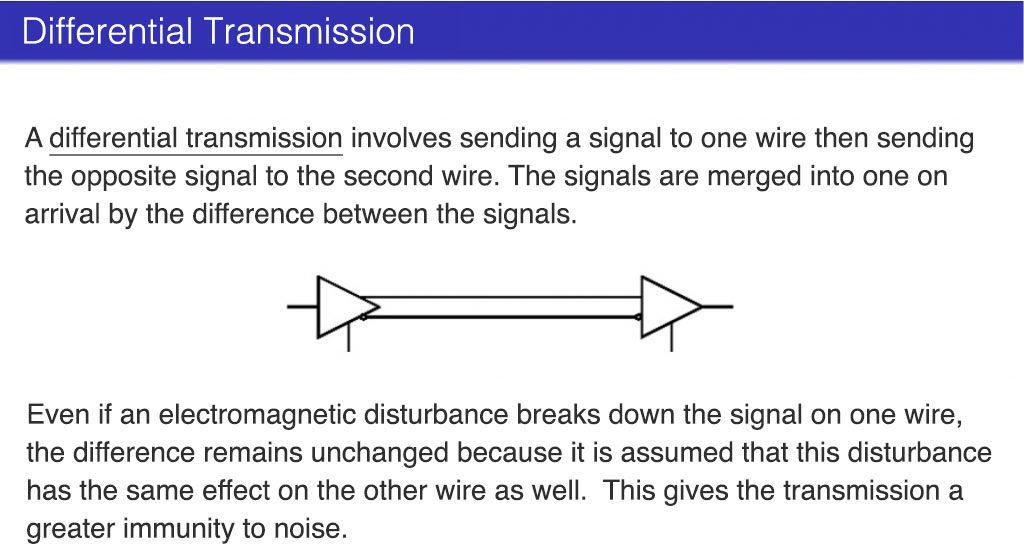

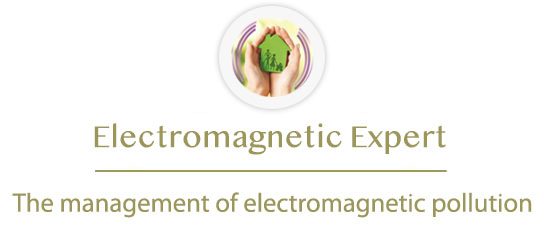
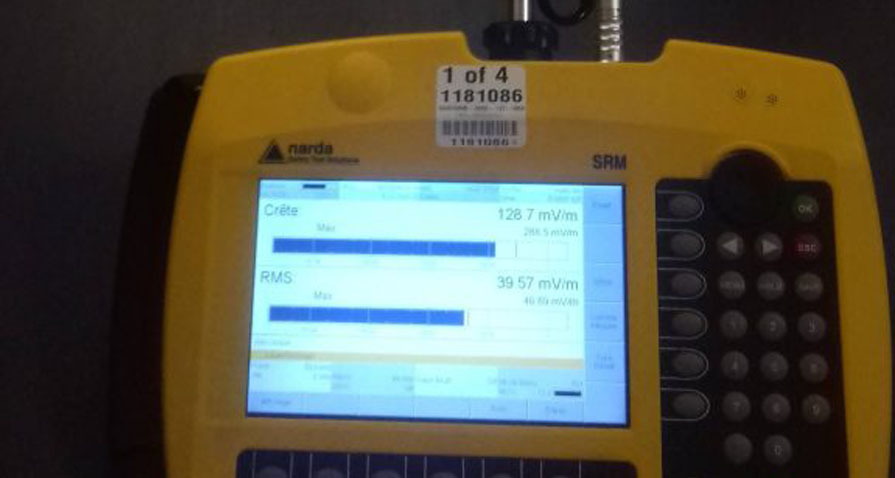
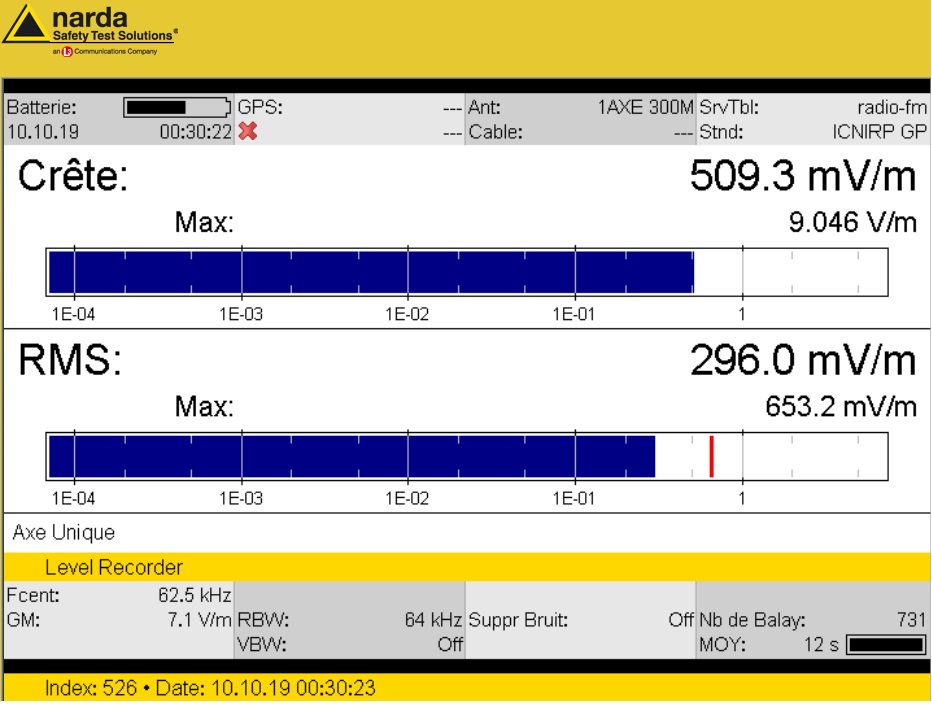
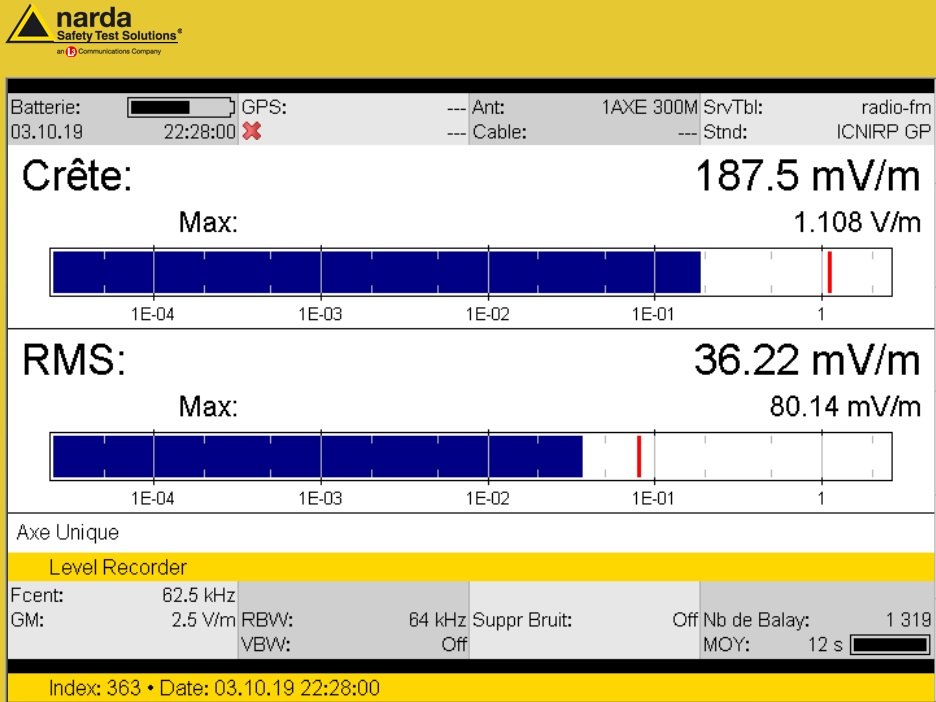
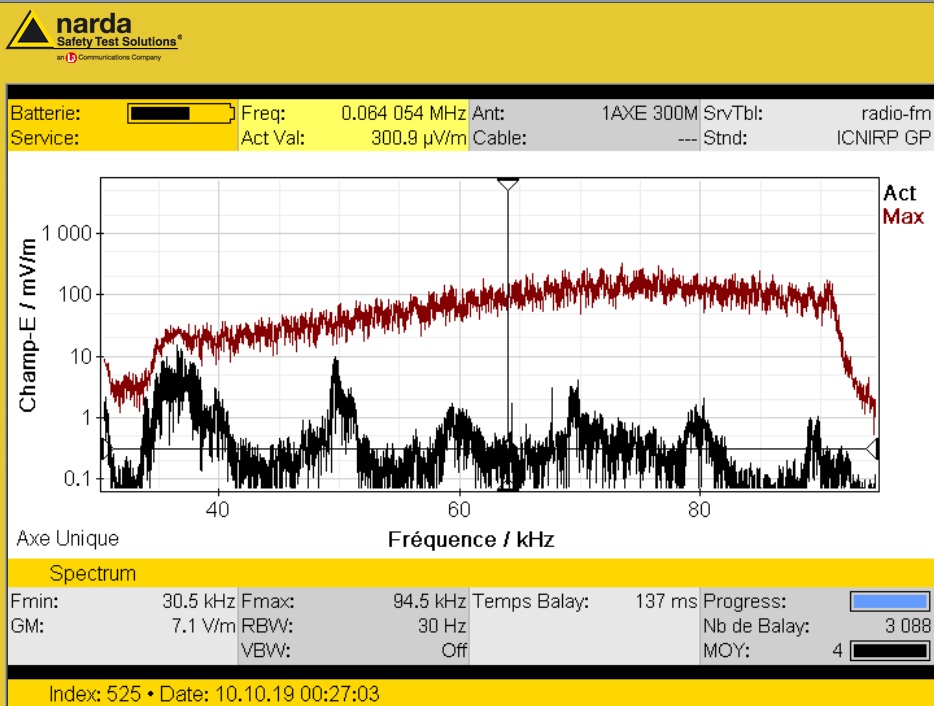
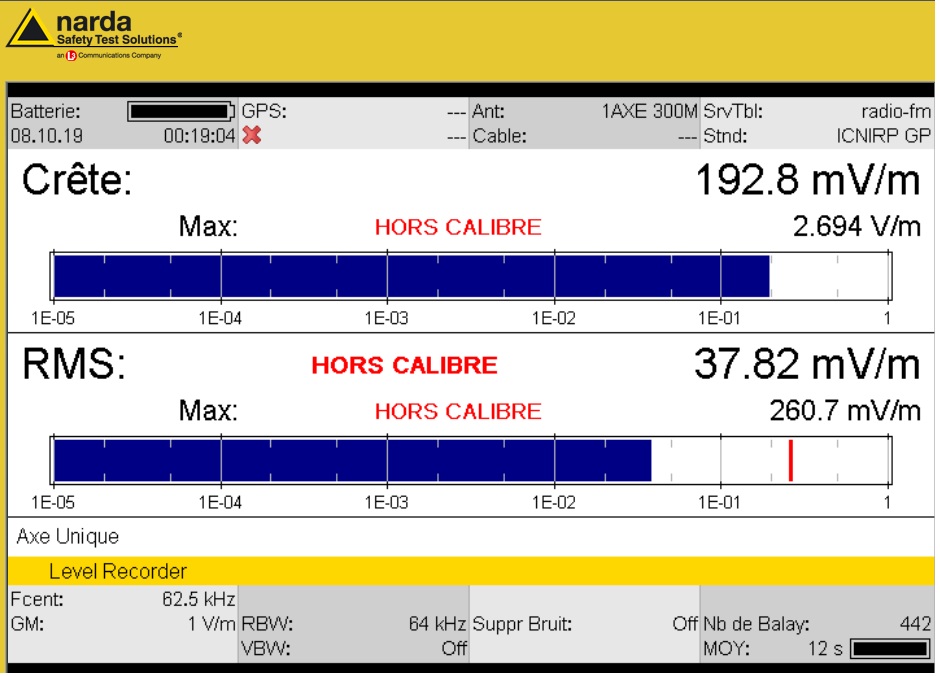
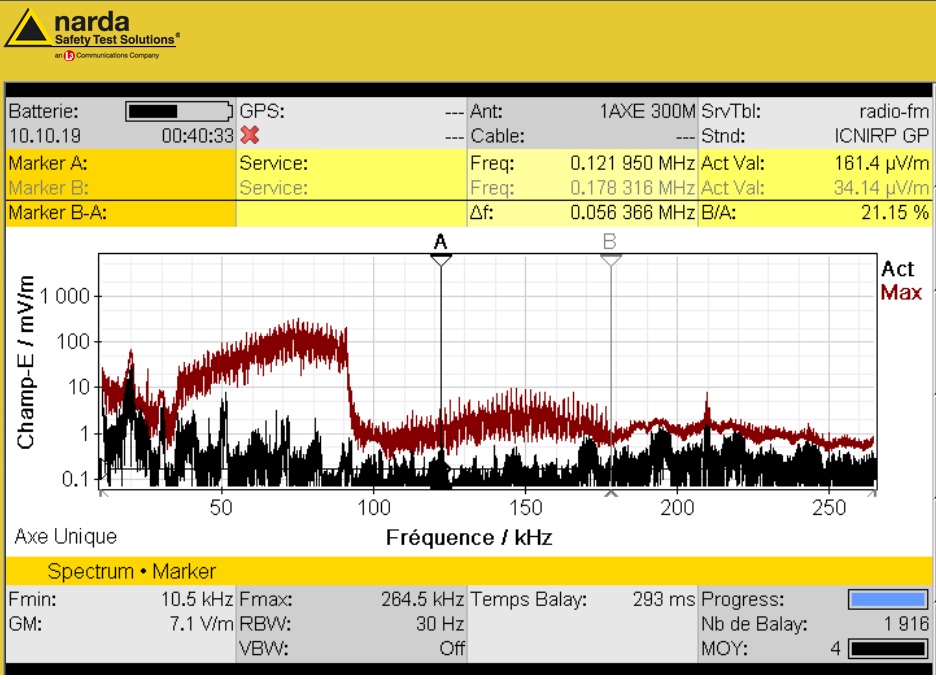
Your post is among the most well-written ones we’ve read. I am grateful for the effort. Thank you for sharing.